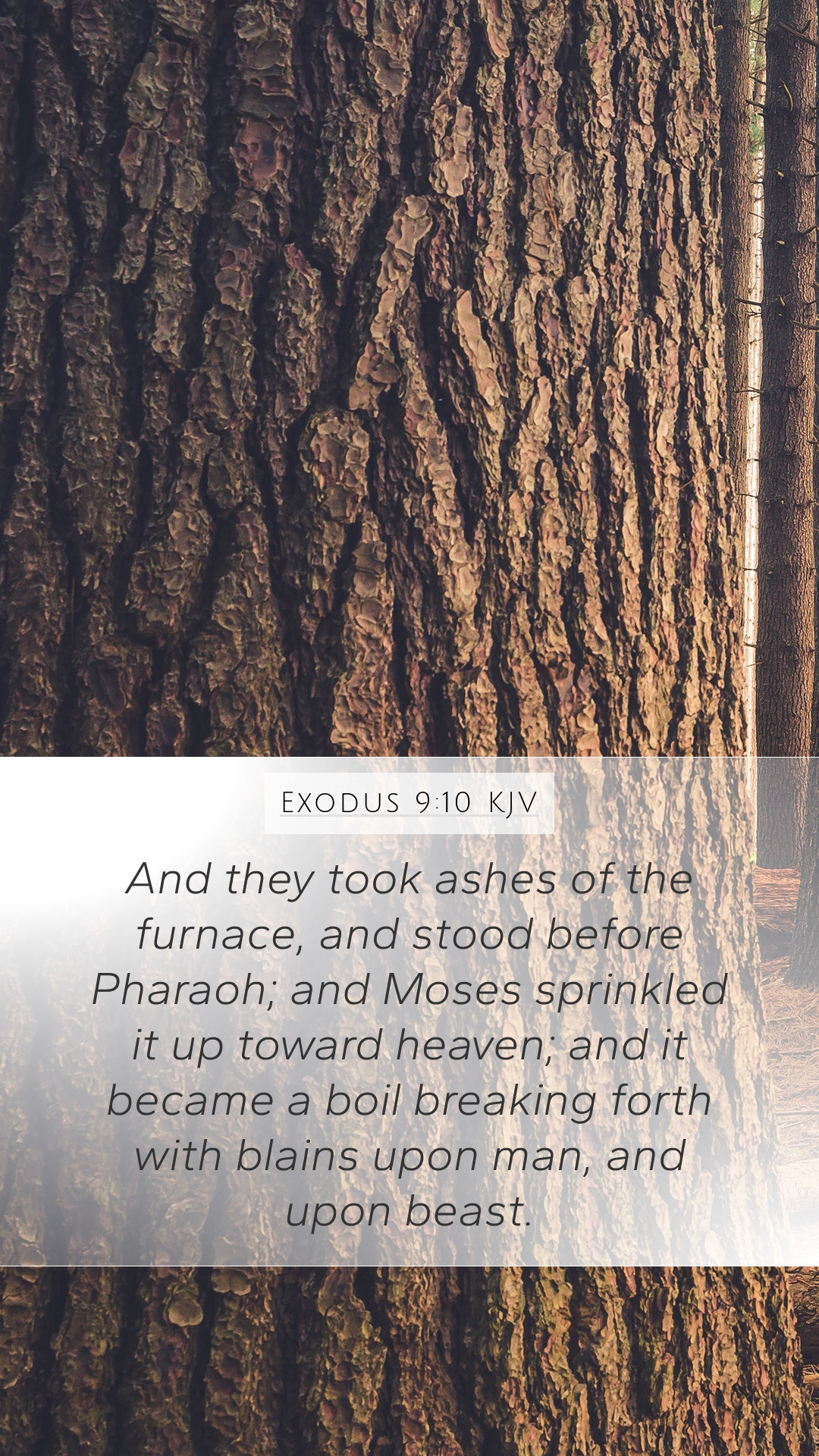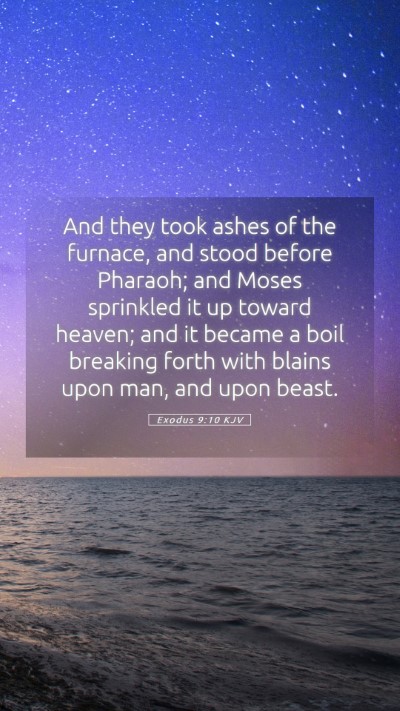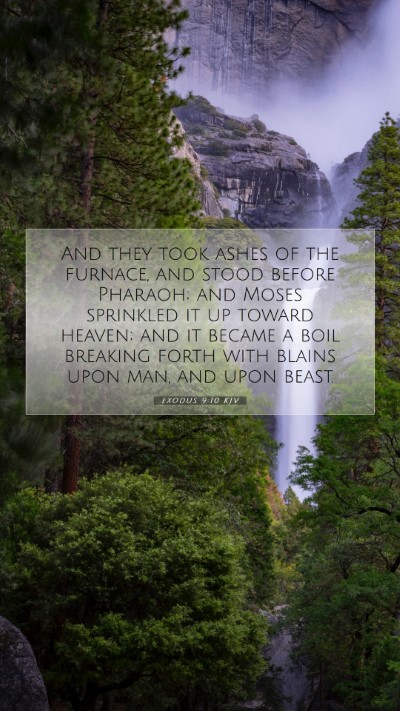Exodus 9:10 - Understanding the Scripture
Exodus 9:10 states: "So they took ashes from the furnace and stood before Pharaoh; and Moses sprinkled it toward heaven, and it became fine dust in all the land of Egypt, and it caused boils that broke out on man and beast." This verse signifies a moment in the plague narrative where God sends a severe affliction upon the Egyptians through Moses. Various public domain commentaries can provide deeper insights into this scripture.
Bible Verse Commentary
Analyzing Exodus 9:10 through the eyes of noted biblical commentators reveals layers of meaning in this verse.
Matthew Henry's Commentary
Matthew Henry emphasizes the power of God's judgment manifested in this plague. The act of Moses taking ashes and casting them into the air signifies the transference of divine judgment. Henry notes that the dust turning into boils illustrates the tangible consequences of Egyptian disobedience and resistance to God's commands.
Albert Barnes' Notes
Albert Barnes expounds on the symbolism of ashes taken from the furnace. To Barnes, this signifies the end of man’s strength; ashes symbolize mortality and destruction. The boils represent not only physical affliction but also the spiritual consequence of rejecting God’s messages through Moses. He also points out that this plague particularly targeted the Egyptians, emphasizing God’s sovereignty over all creation.
Adam Clarke's Commentary
Adam Clarke elaborates on the specifics of how the boils represented a severe and painful affliction, likely indicative of the health crises that plagued Egypt at a critical historical juncture. Clarke reflects on the detail that Moses sprinkled the ashes, signifying a divinely ordained act rather than mere magic. He emphasizes the uniqueness of this plague, being one that afflicted both man and beast, further illustrating the totality of God's judgment.
Key Themes and Insights
- Divine Authority: The act of Moses carrying out God's will illustrates the authority and power of God over Pharaoh and his kingdom.
- Symbolism of Ashes: Ashes represent weakness, mortality, and the consequences of sin, a potent reminder of human fragility.
- Judgment upon Idolatry: This plague serves as judgment not just on Egypt's people, but also against their gods and idols, reinforcing the narrative of God's supremacy.
- Nature of Sin's Consequences: The boils illustrate that persistent disobedience leads to cumulative suffering and alienation from God.
Application for Today's Believers
Understanding Exodus 9:10 aids believers in recognizing the importance of heeding God's word and the potential consequences of neglect. The historical context sheds light on the sting of sin and the necessity of repentance. It compels modern readers to reflect on their own lives and the role of obedience to divine guidance. Such analysis is essential for anyone partaking in Bible study groups or online Bible study, as it provides practical applications to present-day scenarios.
Further Bible Study Insights
For those seeking to explore more deeply, this verse relates closely to themes found throughout the Bible:
- Job 2:7: Job faces boils as a test of faith, paralleling the affliction seen in Exodus.
- Psalm 105:36-37: Reflects on God's judgment against Egypt's people.
- Revelation 16:2: A connection to the plagues at the end times, illustrating continuity in God’s judgment.
Conclusion
The meaning of this Bible verse emphasizes the severe consequences of pride and disobedience towards God, fostering a deeper understanding of His justice. It calls for serious reflection on the spiritual health of the individual versus the collective. Through the lens of scripture analysis, we grasp the intricate interplay of judgments, mercy, and divine sovereignty, making it clear how ancient texts carry significant relevance in today’s faith journey.


